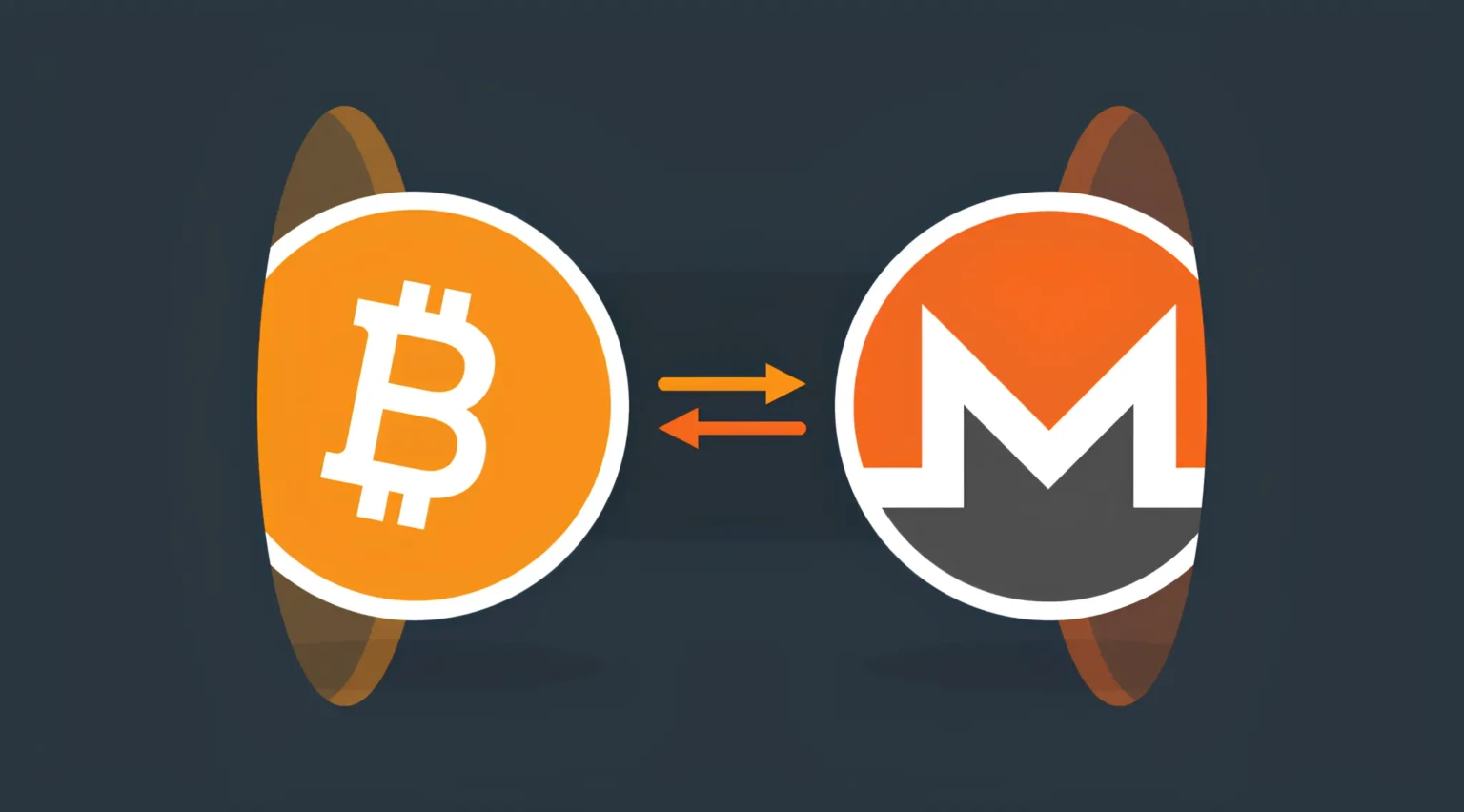For years, Bitcoin has dominated headlines as the world’s first and most widely adopted cryptocurrency. But a growing number of privacy-focused investors and technologists are asking a provocative question: Is Monero safer than Bitcoin?
While Bitcoin remains the poster child of crypto, Monero (XMR) has quietly established itself as the leading privacy coin. Advocates argue that Monero offers greater protection against surveillance, censorship, and tracking, while critics warn it faces higher regulatory risks. This investigative piece explores the safety debate, diving into technology, security, user anonymity, and the future of both cryptocurrencies.
Bitcoin vs. Monero: Two Very Different Philosophies
Bitcoin was designed as a decentralized, censorship-resistant digital money, but its transactions are fully transparent on the blockchain. Every movement of BTC is visible to anyone, meaning law enforcement, analytics firms, and even hackers can track wallets and payments.
Monero, on the other hand, was built specifically to obscure transaction details. Through technologies like ring signatures, stealth addresses, and confidential transactions, Monero makes it nearly impossible to trace who sent funds, who received them, and how much was transferred.
This divergence raises a key question: does Monero’s privacy-focused design make it safer than Bitcoin—or does transparency provide Bitcoin with stronger long-term resilience?
How Monero’s Privacy Works
Monero’s claim to safety rests largely on its cryptography:
- Ring Signatures: Every Monero transaction is signed by multiple potential senders, making it impossible to identify the real one.
- Stealth Addresses: Recipients get a unique, one-time address for each payment, hiding their real wallet.
- RingCT (Confidential Transactions): Transaction amounts are encrypted, preventing outsiders from knowing how much money was transferred.
Together, these features provide a level of anonymity Bitcoin simply does not offer. For many users, especially in regions with oppressive governments or weak financial privacy protections, this makes Monero appear much safer.
Bitcoin’s Safety: Transparency as a Strength
Bitcoin’s transparency is often framed as a weakness, but it also creates security advantages. Blockchain analysis allows exchanges, institutions, and regulators to track illicit activity, reducing systemic risk.
Furthermore, Bitcoin’s unmatched network security—with the highest hash rate of any blockchain—makes it extraordinarily resistant to attacks. Its liquidity and adoption also mean users face fewer risks when buying, selling, or storing BTC compared to niche privacy coins like Monero.
In short: Bitcoin may expose transaction details, but its transparency fuels trust, adoption, and institutional acceptance.
Regulatory Risks: A Double-Edged Sword
A major factor in determining whether Monero is safer than Bitcoin comes down to regulation.
- Bitcoin: While governments remain wary of Bitcoin, most major economies have accepted it as a legitimate asset. Companies like Tesla and MicroStrategy have invested billions, while financial products like Bitcoin ETFs are regulated in the U.S. and Europe.
- Monero: Many regulators view privacy coins as potential tools for money laundering, tax evasion, and criminal finance. In fact, major exchanges like Coinbase and Bittrex have delisted Monero due to compliance concerns.
Thus, while Monero may be technically safer for individual privacy, it faces systemic risks of being outlawed or restricted—risks that Bitcoin, due to its regulatory acceptance, is less likely to face.
Market Adoption and Usability
When asking “Is Monero safer than Bitcoin?” we must also consider practical factors:
- Liquidity: Bitcoin is far more liquid, making it easier to buy, sell, and convert globally. Monero’s lower liquidity may trap investors in volatile situations.
- Merchant Adoption: Thousands of merchants accept Bitcoin, while Monero adoption remains niche.
- Storage and Custody: Secure Bitcoin custody solutions exist across exchanges, banks, and even ETFs. Monero custody options are limited.
For long-term investors, these adoption factors can make Bitcoin appear “safer” from a financial perspective, even if Monero is technically safer for privacy.
Security Threats: Hacks, Tracking, and Attacks
- Bitcoin Risks: Chain surveillance firms like Chainalysis can deanonymize Bitcoin users, undermining privacy. Yet, Bitcoin’s network security is unparalleled—attempting a 51% attack would require astronomical resources.
- Monero Risks: While its privacy is strong, some law enforcement agencies claim partial success in tracking Monero transactions. Monero’s smaller network also makes it relatively more vulnerable to mining attacks.
Thus, both assets face unique risks—Bitcoin from surveillance, Monero from potential de-anonymization or network attacks.
Expert Opinions: Safety Depends on Context
Cybersecurity experts often argue that Monero provides better individual privacy, making it safer for activists, journalists, and individuals in authoritarian regimes.
Meanwhile, financial analysts highlight that Bitcoin is safer from an investment and regulatory standpoint, given its institutional adoption and global recognition.
In other words, Monero may be safer for personal anonymity, but Bitcoin is safer for large-scale adoption and long-term stability.
FAQ: Is Monero Safer Than Bitcoin?
1. Is Monero safer than Bitcoin for privacy?
Yes. Monero uses advanced cryptographic tools like ring signatures and stealth addresses, making transactions far more private than Bitcoin.
2. Is Monero safer than Bitcoin from regulation?
No. Monero faces significant regulatory challenges, with many exchanges delisting it, while Bitcoin enjoys growing institutional acceptance.
3. Is Monero safer than Bitcoin for investment?
Generally no. Bitcoin’s liquidity, adoption, and regulatory clarity make it a safer long-term investment compared to Monero.
4. Is Monero safer than Bitcoin against hackers?
It depends. Bitcoin’s network is more secure due to its size, while Monero’s privacy features make wallet tracking harder.
Conclusion: Safety Is Not One-Dimensional
So, is Monero safer than Bitcoin? The answer depends on how we define “safety.”
- For individuals seeking maximum privacy, Monero is unquestionably safer. Its cryptography shields users from surveillance in a way Bitcoin cannot.
- For investors prioritizing liquidity, adoption, and regulatory acceptance, Bitcoin remains the safer choice.
As global regulation tightens and privacy concerns grow, the debate over Monero and Bitcoin will intensify. In the future, hybrid models—cryptocurrencies balancing transparency with privacy—may emerge as the true safe haven for both privacy advocates and institutional investors.

